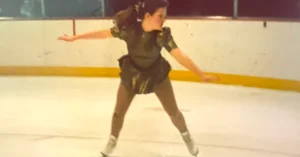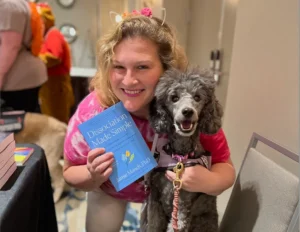The study of subjectivity is broadly concerned with what it means to be an experiencing subject in the world. When I touch the book, “I” am the subject doing unto an object, namely “the book.” This subjective “I” touches the book, reads the book, has the book fall on her head, absorbs the ideas in the book, discusses them with another human being. So, when studying subjectivity, we ask questions about who I am, how I experience the world, and what gives me meaning as a being in the world. It invites us to think about the way in which we relate to the world around us and how we understand our place in it.
This has always struck me a very disconnected an unsatisfying way to look at my place in the world. The few memories I do have of my childhood are characterized by that feeling of disconnectedness and inability to make contact with the “external world.” Like many, my adolescence was characterized by a chronic striving to “fit in” with the popular kids, with the ever-present anxiety that accompanied a lack of knowing what they really thought about me. Even now, I have very few memories of my childhood before the age of fourteen, which incidentally coincides with the age at which I discovered the ability of alcohol and drugs to manufacture a sense of connectedness to the world – a pastime which would temporarily cure that sense of longing, but ultimately exacerbate the feelings of disconnect and loneliness. Even as an adult I have few belongings that suggest I even existed more than a few years ago. And so, with a lack of history in terms of geographic location, memory and material possessions, save for the ephemeral sense of disconnect from the world around me, I stumbled into this philosophical tradition that reified every negative cognition and somatic discomfort about my lack of fitting into this world.
But there’s another way to think about our place in the world. Maybe we aren’t just minds functioning as detached observers. Part of what it means to be human is to have experiences in the world. To both contribute to shaping the world and to be shaped by it. To bring an amalgamation of life experiences to bear in our interactions with it. Everything we know, we know from a place that has been informed by a geographic, historic, and cultural context that we bring to the table when making sense of a situation or experience. Such an approach to understanding the subject or self means that we are fundamentally evolving, unfolding and growing with each encounter in the world. We are part of the world, connected intimately to it, and it is part of us.
So, what does this mean for the kid with no memories and a chronic sense of isolation from the world? What has it meant for the girl from nowhere? It means the way I understood myself has shifted over time away from the desire to figure out what others think of me and how I can access the inaccessible. Treating the world like an object to be figured out or analyzed as means to manufacturing a sense of connection with it, somehow only puts greater distance there. But in embracing my own unfolding story and honoring oneself as an evolving, growing, and emerging creature responding to the world around her, rather than trying to figure it out, has paradoxically resulted in a deeper sense of connection and intimacy in relationships and with the world at large. The ironic twist here, is that in my experience when I let go of striving to figure it all out and instead am mindful of my own experiences and responses to the world, I actually somehow become part of it rather than a detached observer.
Moreover, if in every interaction with the world I bring with me a history of experiences that help me to make sense of those interactions, then I also bring those experiences with me as I look back at my past. This means I get to look back at a childhood and adolescence that I don’t fully comprehend, that is missing large pieces, and characterized by a sense of not belonging with the wisdom of experiences and memories acquired later in life. For the girl from nowhere, understanding myself in hindsight with the full weight of the experiences I do have, means I get to weave together a new story and claim that history for myself – to rewrite my own narrative.
There is one last important consequence that results from understanding subjectivity as evolving in response to a world with which we are intimately related and in communion. An intimate connection with and sense of belonging to requires responsibility. If we are connected with the world and therefore one another, we are responsible for both validating one another’s unique experiences and histories and challenging one another to continue to grow and evolve. It is not enough to simply honor from whence we’ve come. Comfort with self, community and other, means we must continue to submit to new experiences that challenge us to discard old ideas that are no longer productive and avoid becoming stagnant.
Understanding subjectivity as the embrace of one’s unfolding story in response to the world about her sounds lovely. yet even as I write this, I am keenly aware that I don’t always live in this space of communion with the world. I would be lying if I said I never gave a damn about what you thought about me, or how even this piece of writing might be received. I want you to like it. I hope you do. But it’s not something I can figure out how to make happen. Even with the full recognition that my striving only feeds my discomfort, I readily admit I still fall into these patterns, defaulting to my analytic brain. I have a choice today about how I want to engage the world, and it’s not always an easy one as I slip into old ways of thinking. So if you see me on the street, feel free to remind me that my own history, experiences, and insights are worth honoring or perhaps need challenged so that I might continue to grow and feel a little more comfortable in this world, and I’ll try to do the same for you.




